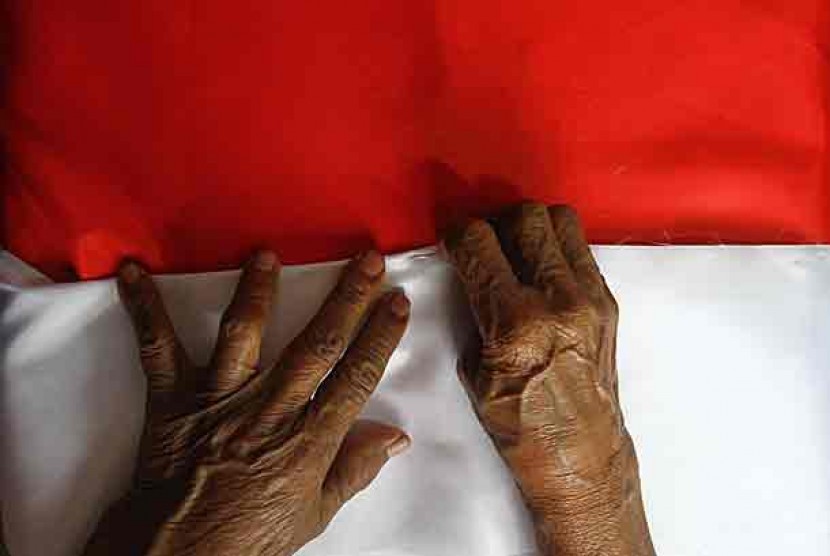REPUBLIKA.CO.ID, By: I Nurdin *)
Hundreds of Papuans calling themselves West Papua National Committee (KNPB) keep demanding the independence of Papua. KNPB through its wing organization, one of them is Aliansi Mahasiswa Papua (AMP), actively holds protests even though they got no support form Papuan society. The most recent activity is that AMP created an organization named Gerakan Rakyat Papua Bersatu (GRPB) because the name of AMP, especially in Yogyakarta, received negative response among the activists even among Papuan students. AMP’s actions have been so far displaying their support to the separatist movement shown by the attributes they use that represent the Free Papua Organization (OPM).
Its limited access to information become the motivation for them to exploit Papuan people for their interests. Among college students, KNPB exploits the Papuan students studying in other cities. However, I believe that those students, when they join the protests, do not know exactly what they protest. They, who mostly freshmen, only follow their seniors. The seniority system among Papuan students is still very strong. The majority of Papuan students who continue their education outside Papua get scholarship. The distribution of scholarships to students from the local government, made through senior students who take charge of the association.
Therefore, following the rallies become their only choice for new students to get along with the seniors.
Another method used by KNPB and other typical organization like The United Liberation Movement for West Papua (UMLWP), West Papua National Coalition for Liberation (WPNCL), and Negara Republik Federal Papua Barat (NRFPB) is spreading falsehood. While doing protests, these organizations often violate the permit. For instance, they applied permit to perform worship to support ULMWP to become the member of Melanesian Spearhead Group (MSG), yet in fact they conducted a protest. Because of these repeated falsehoods, the people have then realized which groups struggle for their own interests and which genuinely struggle for the Papuans. Furthermore, the Papuan Customary Council (Dewan Adat Papua/DAP) rejects the use of DAP office for separatist-affiliated activities.
In Yogyakarta, the rejections came from Papuan students themselves. Because of the demonstrations held by a few people, around 7.000 Papuan students are labelled separatist by the society. In fact, they came to Yogyakarta purely for studies, not involved with any political entity, especially separatist groups. More concerns come from the fact that there are also some activists from some social movements/ NGOs in Yogyakarta supporting the separatist-affiliated Papuan student groups just for a partiality.
All these protests demanding the freedom of Papua, like what was done by GRPB, might be infiltrated by some hidden agendas, especially considering that the actions were held in Yogyakarta, a city known for its tolerance and hospitality. Some weaknesses of Papuan opposition groups are: first, these organizations often spread falsehood to society so that they tend to be ignored, even considered as a political maniac community that likes to politicize the Papuans.
Second, these organizations are led by political adventurers who all this time only struggle for their own interests. Third, those organization are abstract and illegal organizations meaning that joining them will only do harm for the Papuans as they will eventually face the Indonesian Law.
Fourth, the demonstration they conducted were set to trigger chaos with the security officials. Should the chaos happen, they can use it as a material to bring forward the issues to international forum. Having known this, the security officers in Papua become more prudent in accomplishing their duty by refraining themselves to not easily get provoked. However, when the protest tends to be anarchist, campaigns for independence, and disturbs the peace in Papua, the security officers will firmly execute them as this measure is fully supported by the indigenous people of Papua.
Fifth, the international intervention in the West Papua referendum held by IPWP during Westminster Declaration on 3 May 2016 at British Parliament, as mentioned in their campaign, does not make any sense and can be categorized as cheap political propaganda by this pro-OPM group. The British Parliament will never support the independence of Papua because it will break the diplomatic relationship between UK and Indonesia.
Thus, the people of Papua should support President Jokowi’s programs that already represent policies that support the improvement of Papuan welfare. In fact, regarding the human rights issue, President Jokowi’s approach is quite similar to former President Abdurrahman Wahid alias Gus Dur. Jokowi’s programs prioritize healthcare improvement and respect human rights in Papua.
*) A graduate student at STIMA IMMI


